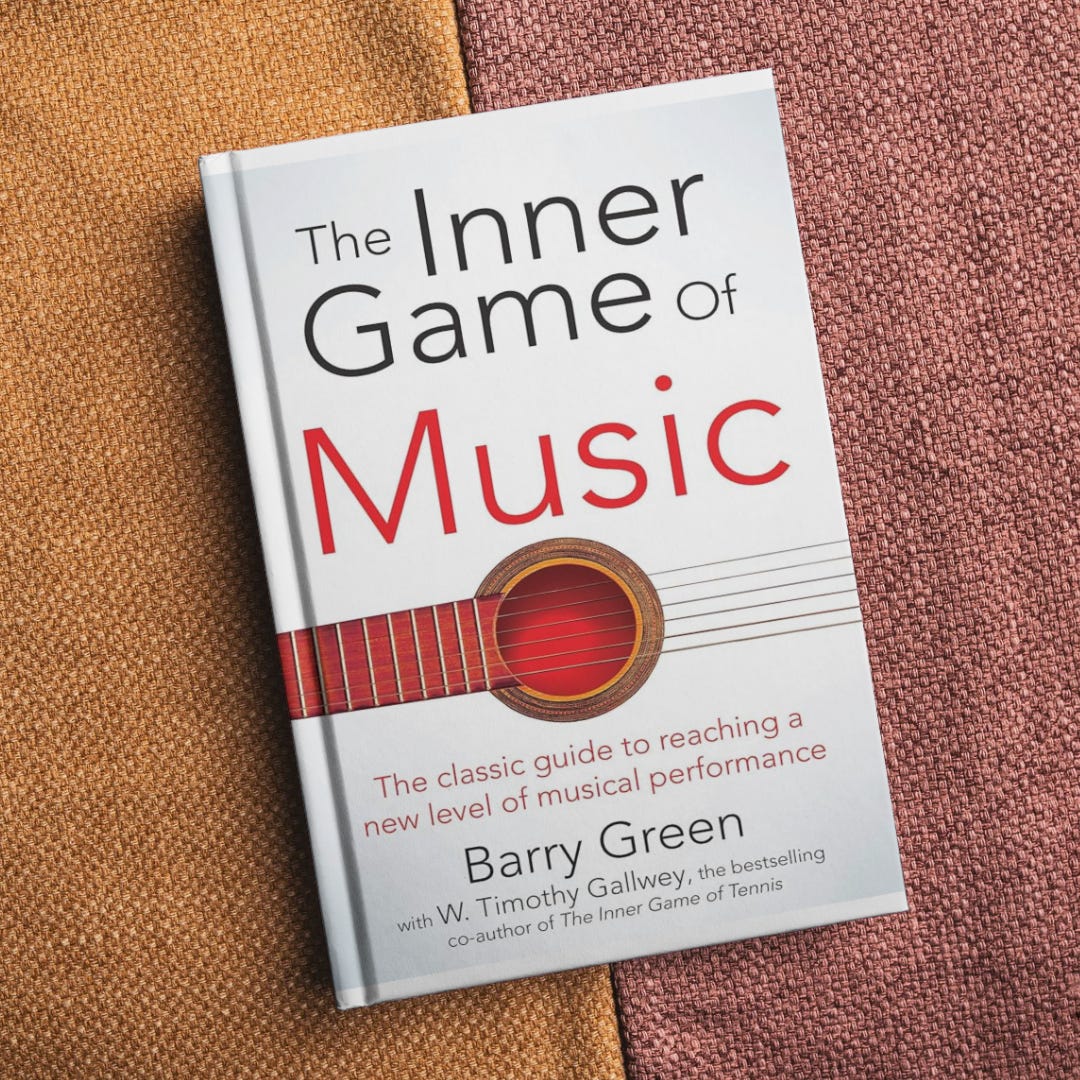This week, I had to do some self-reflection, which I wanted to share with y’all. Recently, someone left a comment under one of my older videos saying that my playing used to be more expressive than it is now and that my tone was better back then. I couldn’t find the comment anymore, but I read it, and it got me thinking.
Could they be right?
This is the video where they left the comment:
For comparison, here’s one of my recent music videos:
I thought a lot about why they would feel that way, and here’s what I figured out. I’ll talk about it today in the following order:
the change in my production timeframe
the different recording setups and their effect on quality
the change of my standards for myself (for the better and the worse)
practical, science backed steps I took to reconnect with my music
future projections and inspiration
So first, let me talk about some key differences between me and my younger self.
The piece I played first is something I worked on for three years continuously. It’s a piece I was refining to be recorded eventually; I wanted to play it in competitions and performed it at my final exam at university. But here’s the thing: back then, I was able to allow myself to work on a piece for two years because I had nothing else to do other than practice. No figuring out what to eat, where to get money from, what to do with my life, how to find my artistic voice, or how to be a useful part of society. None of that. I had a lot of time to get prepared for that recording, and after I’d done it, I didn’t make another recording for over a year. Just imagine that stress-free workload, haha!
Now I obviously give myself a shorter time period to prepare for recordings because this is my life now. I make videos. That’s the job. I wish I could tweak each of my songs for years before showing up with a music video, but I don’t think it’s worth it. Being overly obsessed with all the nuances and micro elements of a piece can get to a point where it doesn’t add to the music anymore; it stops it from breathing and just suffocates it. When I hear that Tansman variation, this is what I hear—that it’s a player who’s not feeling good, but is stressed over each note. And while the tone, in general, is very sweet and expressive, the piece is just not executed well technically and has lots of immature phrasing that I’d do completely differently now. But that’s not the objective of this discussion.
Let’s talk a bit about the recording.
That recording was made by a professional sound engineer with at least four mics, if I remember correctly, in a beautifully sounding church. On a regular basis, I can’t possibly do that. So I’m learning to record my music at home with two mics. Even if I play the same way, it’ll always sound a bit more boxy and less smooth at home than when recorded by someone who can create a beautiful soundscape. I have no idea how to do that. So just for a more fair comparison, here’s a later recording I made with the same sound engineer:
I think on this one, I play much more freely than on the Tansman. I play for my own joy, while on the Tansman recording, I constantly hear the old “good girl” I always tried to be, and I can hear how hard I was trying to be accepted by teachers and the whole classical guitar community. Here my phrasing is more free and breathing.
And here’s one I made recently with my budget setup at home, using the same guitar, same strings, and same playing:
It is so much sharper, but that’s just how it is. I think I have a lot to learn about recordings, but I’ll never be able to replicate what professionals do—they are magicians.
But I also discovered some truth in what the commenter said, which is maybe a threat to all professional musicians.
We used to publish works less frequently in the past, leaving us much longer time to fine-tune every phrase and note. This has changed, and it may have affected our playing, both for the better and the worse. Now, because I publish more often, I had to come up with a compromise, allowing myself to publish things even if they’re not flawless. This mostly means subtle things, like if I play one note that has a slightly inconsistent tone compared to the previous few, I leave it in, while back then, this wasn’t something I accepted. (However, because I’ve improved so much in my tone production, it occurs less often now compared to just a few years ago when inconsistent tone was something I did by accident more often.) I told myself that I have to learn to live with that because otherwise, I’ll never get things done; I’ll never publish another recording. “Focus on the good parts and keep improving,” I said.
In the meantime, I also shared a lot of my progress on streams and short videos of pieces that I was practicing at the time. Just a few years ago, I could never imagine uploading a 45-second video where I play “not too great” according to my standards and say, “Hey guys, this is a new piece I started working on last week.” That’s a crazy shift from practicing a piece for three years to perfection.
Because of the fast pace of social media, mistakes and imperfections are being normalized, which is great to a certain extent, but it also has an effect on what we think is “ready” or “finalized.”
Over the past few years, as I started using social media more, I began listening to fewer high-quality recordings of my favorite players, attended fewer concerts, and started scrolling my phone in my free time by default. Instagram is filled with mediocre musicians getting all the social reward for playing that is, well, mediocre, for all kinds of different reasons. This is another discussion for another day. Some days I wake up and think I’m no different from them, but today I woke up thinking I am. But as mediocre playing is so rewarding, and this is nearly all I can see when I open my phone, it probably made an impact on my playing and unintentionally lowered my standards or idea of good playing.
I know what I’m saying sounds pretentious and basically describes everything that’s wrong with academia: gatekeeping, labeling music as “bad” and “good,” etc. I do think there’s good and bad music, and the lowest bar you have to hit to enter the “good” zone is to play the right notes at the right time, at a consistent speed and tone, with a connection between melody notes and a sense of musical direction. “The feel” has nothing to do here. Everybody “feels”; if it were enough, everybody would be a good musician. Now, how you do all that is your job; as long as what you do on the instrument hits those basic criteria, it works, and that’s fine.
Finding that I may have lowered my standards for what is the best I can do really hit me in the gut. I even felt ashamed knowing that maybe if I had just tried a bit harder in the past two to three months, I’d have played so much better on so many recordings for so many people. But I still couldn’t fully grasp the issue with my playing. “Less expressive,” okay. What does that mean? I really had no idea.
So it was time to reconnect with who I was five years ago.
I searched for all my favorite players and recordings from that time, not just to listen, but to watch, too. Not like I do these days, putting something on my second monitor while I do my business on the first, but like I was watching a concert from a VIP spot, fully engaging with and absorbing every note I hear.
There’s a study that observed children’s performance on different tests. One group of children was told to do the test as well as they could. The other group was told to imagine that they were their favorite superhero and solve the puzzles as if they were that hero. The result was very interesting because the superhero group did significantly better than the other group, exceeding the researchers’ expectations.
Probably based on this research, I read an exercise in The Inner Game of Music by Barry Green. The exercise says to play a piece as if you were your favorite player. My all-time hero is Marcin Dylla, but when I sat down to play, I felt like all the influence from the amazing recordings I had just listened to flowed through me, making every note I played so much more meaningful. It was like reconnecting to a part of myself that I had neglected.
It’s important to filter critiques because often people are just being mean and trying to get into your head, but sometimes it’s worth spending just a little time thinking about it. While I think this person didn’t give too much thought to their comment, it opened up a very important self-reflection in me that I’m grateful for. I need to check in with myself every now and then to see if I’m on the right path.
So, what can I do next?
I think being okay with the limitations of my recording situation is very important, and I have accepted that. But making professional recordings is how I can truly measure my progress. I hear huge differences between the things I recorded in 2019 and 2022, and I think I have improved even more over the past two years musically. So maybe it’s time to finally put together a new recording plan and prepare an album, or at least an EP.
Lastly, I want to leave you with a few recordings that inspired and touched me the most over the past few years. This is a classical guitar playlist; maybe I’ll share one with other instruments sometime.
My Favorite Things from Last Week
Capy and I recorded one last outdoor music video for this year in Budapest. It was already way too cold—only 14°C, and I only had a light long-sleeve shirt on. That whole recording project had lots of ups and downs; I think I’ll dedicate a whole post to tell you about it. So many lessons learned.
Some BTS and the final video will go up on Patreon very soon. If you enjoy what I’m doing, please consider supporting me. 🙂
This was a very long post; there’s a lot on my mind, and I still tried really hard to keep this shorter. So, I’d love to hear from you guys—what you think about it, either about my specific case or the whole phenomenon of social media guitarists, or being a creative in the age of internet.
New Video
Finally I wanted to let you know that I published a new video a few days ago. In this one I walk you through on my process of how I test new guitars, what are some of the key things I'm looking for and just how I approach a new instrument in general. Hope this will help you to get some ideas on how you can test your next guitar as well :)
This was a lot, I know, thank you for reading, and I hope you can take something away from it!
Hugs,
Beatrix






Beatrix, thank you for going deep and then sharing. There's a lot of analysis, and heart, in what you experienced and then shared with us and you did not have to do it. That's a risk and takes guts. I just had my 70th birthday in July and decided to purchase a classical guitar and learn to play which is how I found your site and Brandon Aker and many more as I combed the internet to try and understand what I'm getting myself into. And, boom!, suddenly I realize I'm kinda over whelmed with info and music types, some I love, some not so much and history and new musicians..........you get the point. Your post lead me to think more deeply about why I want to step onto this path. Joy! It may not be the only reason but it's likely the best. Your situation is different from mine as your joy is now your business/job, how you pay the bills. That path requires a different attitude and approach. I'm a farmer. Our farm has grown over the years and required hiring people as we expanded production. It's not the same. I have had to manage the work of others and therefore do less hands on farm work. This was a challenge but I have grown within it. But.........though the farm is an economic success; a beautiful and most valuable effort (people gotta eat), some joy has been lost. Figuring out how to get more joy into my life is a goal. Understanding that is wisdom. Taking action to achieve that is smart. Learning to play guitar, though a lot of effort, should help. Keep on helping others learn as you seek to balance work and joy in your life. Wayne